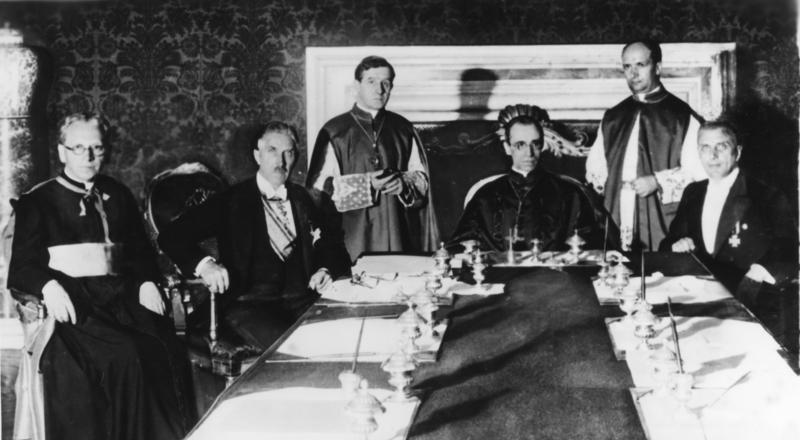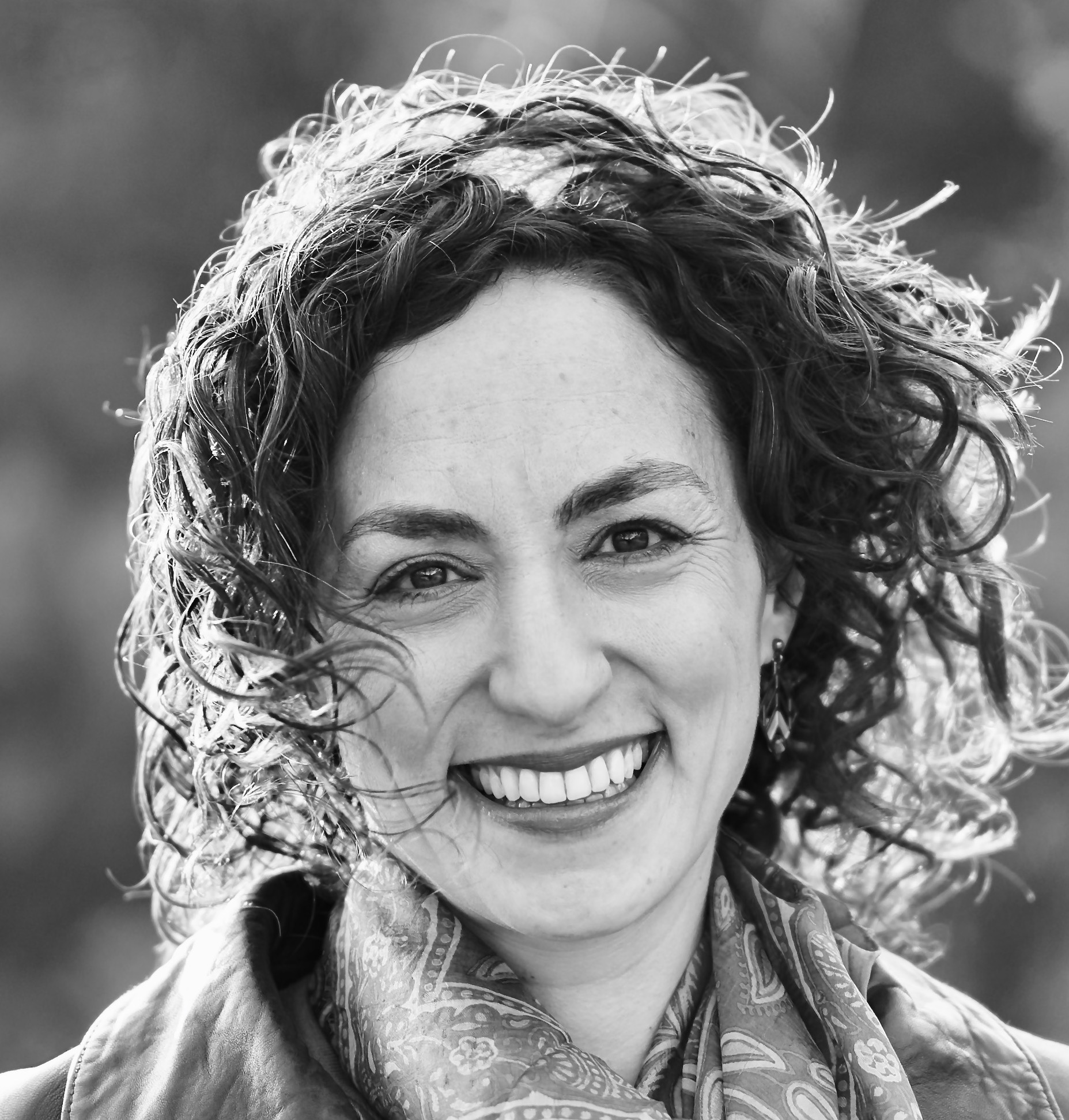
It is an honor to respond to these wonderful reflections, which have not only restated the central conclusions of my book more succinctly than I ever could, but also suggested fruitful new ways of approaching the relationship between religion and politics in the twentieth century. In my brief response, I’d like to address three major points raised: first, how a historian can approach Catholic subjectivity and the “priority of belief”; second, the relationship between papal internationalism and rival forms of Christian internationalism in the years after World War I; and finally, the mutually constitutive relationship between religious and political movements in the course of the past century.
In his outstanding contribution, Scott Appleby emphasizes the importance of attending to Catholic subjectivity in explaining the behavior of the Vatican in the twentieth century. He underlines that the first and most important thing to remember about papal officials and Catholic faithful is the “priority of belief.” By this, he means their “widespread, bred-in-the-bone belief in the supernatural as the controlling and ordering reality.” Without attending to this intimate, epistemological, part of the story, something of the force of the moment is lost. After all, the anticommunist crusade that took off from the 1930s (a major topic explored in my book) was, as Appleby reminds us, seen in existential terms: as the face-off between good and evil. Despite the fact that the Church urged its followers away from human subjectivity and experience as the source of truth, Appleby suggests that in order to understand the history of the Church and of Catholicism, we must begin with individuals’ subjective perception of the world. His reminder is one I can no longer address in A Twentieth-Century Crusade (alas), but it will doubtless inform my future scholarship, which will rely more heavily on oral history and on grassroots and bottom-up analyses of how historical subjects make sense of the world.
As Appleby emphasizes, it is not just the subjectivity of historical actors and actresses that needs attention. Just as important, in his view, is for the scholar-historian to emerge out from behind the curtain of third-person narrative, and make explicit their own ethical and religious commitments. Building on the work of scholars like Atalia Omer, he suggests that it is the task of self-identifying religious scholars to recast themselves as “critical caretakers” of their religious traditions. By “critical caretaker,” Omer means that religious scholars (not just scholars of religion) should own their subjective involvement, and leverage the personal stake they have in the topic. This will enable them to recast their scholarship as not just a descriptive or recuperative project (aiming to rediscover the past, or tell it “as it really was”), but rather as an ethical undertaking as well. Thus, Appleby writes, “critical caretakers” will shine a bright light on the “internally plural, ethically ambiguous, and yet spiritually profound traditions” they document. As Father Murhula emphasizes in his contribution, they will not hesitate to voice their disappointment or anger at the shortcomings of their faith. It is alright to be indignant (in Father Murhula’s words) that “quite unbelievably, it took until the Second Vatican Council . . . to address the Church’s grievances and overcome its stubborn resistance to the spirit of modernity,” or express shock at “the Catholic missionaries’ failure to denounce atrocities perpetrated by colonial agents.” But stopping here would be insufficient. Instead, it is necessary to recuperate the dizzying complexity of the Catholic historical and ethical contribution to modernity—a process which will also show how lay Catholics and the Church simultaneously labored to expand human rights and social justice. Thus, “critical caretakers” can outline inspiring histories, and warn against the recurrence of past errors. While Appleby speaks quite understandably from within his own positionality as a religious scholar of religion, it seems to me that heterodox or secular scholars would similarly benefit from explicit reflection on the ethics of unearthing the past—and the ethical lessons that can be derived therefrom. We too need to come out from behind the curtain and frame the “so-what” of our story not just in terms of scholarly debates, but with careful attention to what our story can illuminate about the human condition and the possibility for a more just future.
A key issue broached in my book that combines an interest in ethical and historiographical matters is Catholic internationalism—that is, the work done by the central government of the Roman Catholic Church to compete with rival international forces. Drawing on her own important research on Woodrow Wilson, Cara Burnidge reminds us that the Vatican was not simply competing with international communism or liberalism; it was also in direct competition with other Christian internationalizing forces. Thus, she understands the “crusade” undertaken by the Vatican as one that sought to elevate the papacy as the leader of global Christianity over and against other competitors for that role. It was, in her words, a crusade to sanction Catholic authority “by whatever means had the most effective social, political, and religious impact.” This was not just a crusade against Protestantism or Orthodox Christianity writ large. Rather, Burnidge highlights how the Church’s animus against Woodrow Wilson was so intense because Wilson presented himself as a “Christianizing” force—and thus as a direct rival to the Catholic Church. Burnidge notes a number of surprising points of contact between the Wilsonian project and that of the Church, including the fact that ironically, both Wilson and the Church embraced public, secular, institutions to advance their religious aims. Indirectly, Burnidge suggests that in order to dismiss the “secularization narrative” once and for all, it is not quite enough to recuperate the history of a religious actor and show its crucial contribution to the twentieth century. Rather, one must also carefully explore how manifold religious forces were vying for attention after World War I and saw themselves locked in struggle not only against “atheistic” forces, but also, crucially, against one another.
We too need to come out from behind the curtain and frame the ‘so-what’ of our story not just in terms of scholarly debates, but with careful attention to what our story can illuminate about the human condition and the possibility for a more just future.
This gets us to the knotty question of the relationship between religion and politics, helpfully recast by both Cara Burnidge and Paul Hanebrink. Burnidge kicks off the exploration, noting that she is struck by an apparent paradox at the core of my story: that is, the decision on the part of a religious actor to embrace politics so as to better serve its religious mission. Through tools like the concordat, the Church engaged in secular politics, making legal agreements recognizable to secular nation-states. By embracing concepts like self-determination, it translated itself in secular terms and acted “according to secular norms when desired.” At the same time, however, the Church never lost sight of its status as a religious actor—or did it? Burnidge raises the important question of whether the twentieth-century Vatican should be seen as a political child of the papacy, focused on “developing its legal power and political authority” in non-religious terms, and perhaps even for non-religious aims, or rather whether the institution holds within itself two identities: one secular and political, and the other faith-based and religious. I see my book as making the latter argument, but it would be interesting to see future scholarship exploring the other explanatory framework, and testing its utility.
Hanebrink tackles the religion-politics question from a different angle: rather than presenting the two in opposition or contradiction, he investigates them as intertwined. As he notes, bookshelves overflow with scholarship on communism (and, for that matter, fascism) as “political religions,” which borrowed many of their rhetorical tropes and practices from established religions. But more needs to be theorized on how political movements deeply shaped the languages and practices of religious actors over the course of the past two hundred years. And yet, as Hanebrink explains, my book shows precisely that in numerous ways the Vatican mimicked and mirrored political movements in its own quest for legal, social, and political relevance. It is humbling to think that A Twentieth-Century Crusade—a book whose original intentions were more modest—may also show readers how religious and political forces have co-constituted and mutually reinforced one another over the course of the past century.

